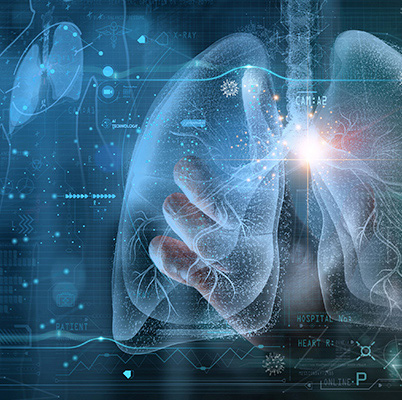Artificial intelligence (AI) and automation are being used more and more in the healthcare industry. They could change the way we diagnose and treat illnesses for the better by being more accurate, faster, and cheaper. But like with any new technology, there are important ethical issues to think about.
This article will talk about the ethical considerations of using AI and automation in healthcare decision-making. We’ll look at the good things they can do, but also the potential problems they might cause. We’ll also talk about how to make sure we use AI and automation in an ethical and responsible way.
Defining AI and automation
First, let’s talk about what we mean by AI and automation. AI means using machines to simulate human intelligence, which helps to make decisions and solve problems using data. Meanwhile, automation is all about using technology to automate jobs and tasks, reducing the need for human intervention.
The Venn diagram of AI and automation

In the healthcare industry, AI and automation are used to analyse large amounts of data, spot patterns, and predict outcomes. This helps to improve the accuracy and speed of diagnosis and treatment, which can lead to better patient outcomes. However, we need to think about the ethical implications of using these technologies as we continue to adopt them and benefit from their potential.
“AI is the capability of a computer program to perform tasks or reasoning processes that we usually associate with intelligence in a human being.” European Parliament
The benefits of AI and automation in healthcare decision-making
AI and automation have the potential to revolutionise healthcare decision-making, resulting in better patient outcomes and a more efficient healthcare system. Here are some benefits of using these technologies in healthcare decision-making:
- More accurate and efficient diagnosis and treatment: AI and automation can process large amounts of data and detect patterns that may not be apparent to humans. As a result, they can provide more accurate and timely diagnoses and create more effective treatment plans.
- Cost-effective and efficient use of resources: Automating tasks and processes can help healthcare providers save costs and use resources more efficiently. For instance, AI-powered triage systems can prioritise patients based on their level of need, reducing wait times and optimising efficiency, allowing hospitals to treat more patients quickly.
Ethical concerns surrounding AI and automation in healthcare decision-making
While AI and automation have the potential to improve healthcare decision-making, there are ethical issues that need to be addressed. Here are some of the concerns we need to consider:
- Bias and discrimination in algorithms: AI and automation rely on data to make decisions. If the data is biased, then the algorithms will reflect that bias, potentially leading to unfair or discriminatory decisions. For example, a model that predicts which patients are at risk of being readmitted to a hospital may be biased if it only uses data from one demographic group. This could result in other groups being overlooked or receiving inadequate care.
- Privacy and security: As machines analyse patient data, there are concerns around the security and privacy of that data. Patients’ sensitive information could be exposed or misused, raising concerns about data protection.
- Loss of the human touch: As machines take over more tasks, patients may feel less connected to their healthcare providers. Patients may feel like they are just a number instead of a person, which could lead to worse health outcomes. For example, telemedicine can be convenient, but it can also leave patients feeling less connected to their healthcare providers.
- Responsibility and accountability: In traditional decision-making, we know who is responsible for decisions and their outcomes. However, when machines make decisions, it can be unclear who is responsible for the outcome. While the creators of the algorithm and the developers of the machine may share responsibility, it is not always clear how this responsibility should be distributed. Furthermore, machines may make decisions that don’t align with human values, leading to ethical dilemmas around responsibility and accountability.
As machines make more decisions, it becomes unclear who is responsible for those decisions.
Addressing ethical concerns in AI and automation
What can we do to ensure that AI and automation are used in an ethical and responsible way in healthcare? Here are some important strategies:
- Be transparent and accountable: Keeping detailed records of how decisions are made is important to ensure transparency and accountability. This includes documenting the data used, the algorithms employed, and the outcomes achieved. Patients and healthcare providers need to understand the decision-making process and be able to hold those responsible for the outcomes accountable
- Avoid bias and discrimination: Diverse and representative data should be used to train algorithms to avoid the risk of bias and discrimination. Human oversight may also be necessary to ensure that decisions made by machines are fair and unbiased.
- Balance efficiency with quality of care: Efficiency gains should not come at the expense of quality of care. For example, if the system relies solely on data points such as vital signs and symptoms to make triage decisions, it may miss important contextual information about a patient’s medical history or social circumstances that could impact their treatment. It’s crucial to balance the efficiency gains of AI with the need for human judgement and decision-making to ensure that all patients receive high-quality care.
- Protect patient privacy and security: Establishing appropriate safeguards is important to protect patient privacy and security when using AI and automation. This includes data encryption, access controls, and regular security audits.
Conclusion
AI and automation can transform healthcare by making diagnoses and treatments more accurate and efficient, while also lowering costs and optimising resources. However, we need to address ethical concerns to ensure patients receive the best care possible. It’s crucial to take a balanced approach that weighs the benefits and risks of using AI and automation in healthcare decision-making and manage their implementation carefully. As technology evolves, we must continue to evaluate and consider the ethical implications to ensure that these powerful tools are used in a responsible and ethical manner.



